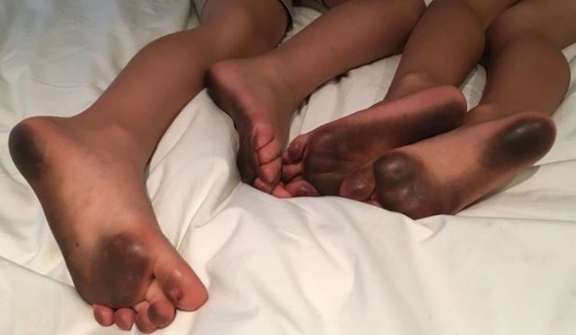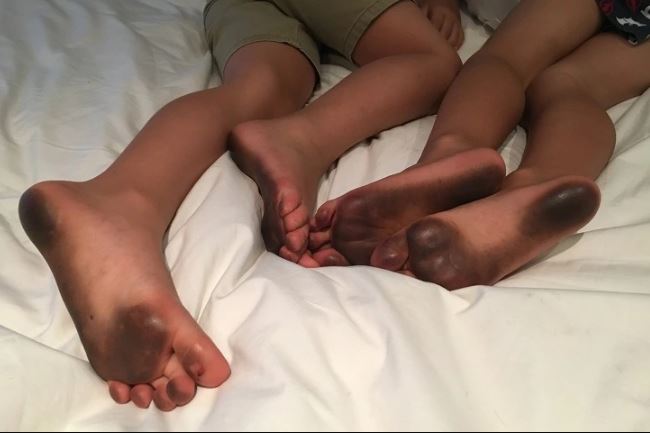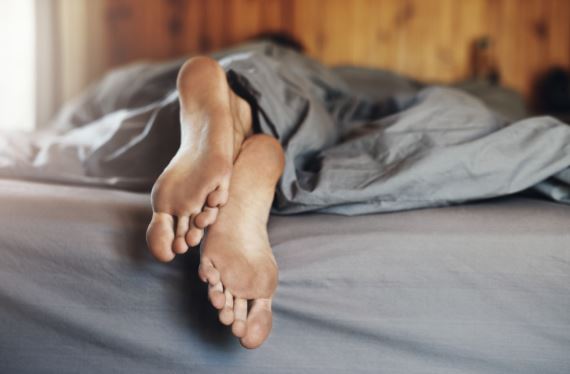
According to Philip Tierno, MD, director of Microbiology and Immunology at New York University, bacteria can survive on clothing for extended periods, ranging from weeks to months. Tierno adds, that Even newly-purchased clothes can harbor germs.

Therefore, you should remove the shirt you have worn for a long day before sitting on the bed. If you don't want all the bacteria and germs that you have collected throughout the day to end up snuggling under the covers with you.
The accumulation of dirt from street to office dust, sweat, and dead skin, on dirty clothes can contribute to acne on our back and chest.

According to research, on a daily day, the human body sheds approximately 500 million skin cells and produces around a liter of sweat. If anyone sits on your bed in their outside clothes, the bed can serve as a prime location for transporting all that dirt.
Consider the various surfaces your outer garments come into contact with subway seats, office chairs, bar stools, elevator walls, park benches, and the countless individuals who have occupied those spaces. Would you willingly invite them to sit on your bed? Once you become aware of the external elements your clothes encounter, you will think twice before allowing outside clothing to touch your bed.

Furthermore, changing your clothes upon returning home bring you many benefits, including helping to maintain cleaner and healthier skin. Additionally, we shed millions of skin cells, and a significant portion of these cells and oils become trapped in our garments.
The bed is a space to relax and restore energy. The brain associates the bed with relaxation and comfort, promoting healthy sleep patterns and rejuvenation.

The Division of Sleep Medicine at Harvard recommends avoiding activities like working or socializing in bed. Instead, it suggests engaging in such activities in other areas of the home, like the kitchen or living room.




